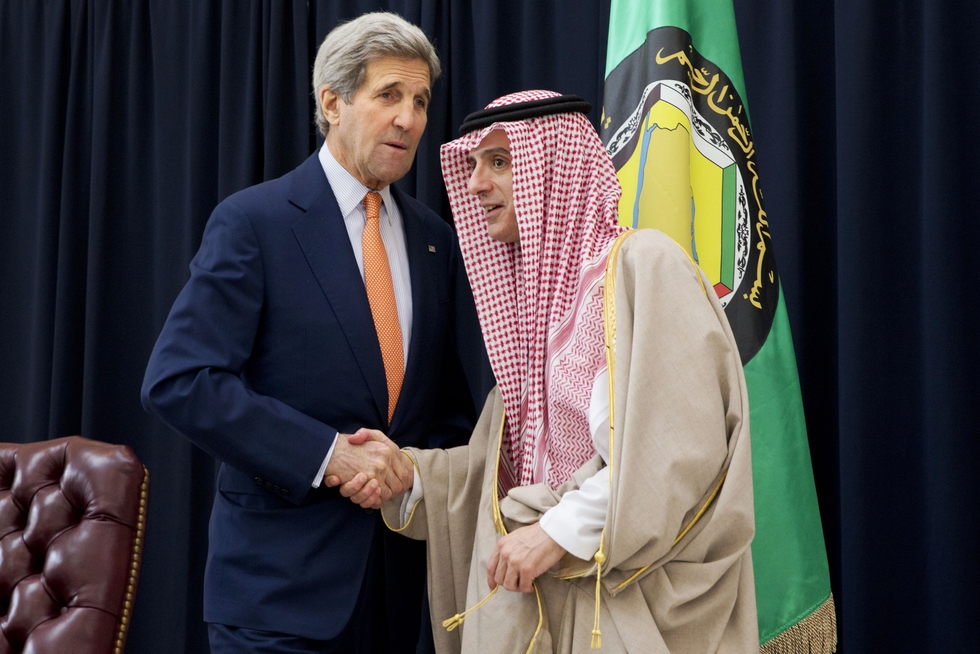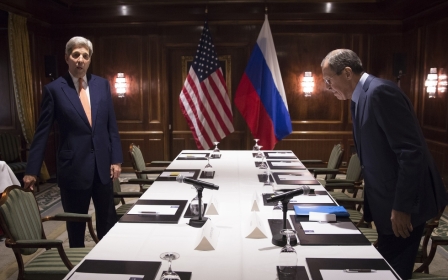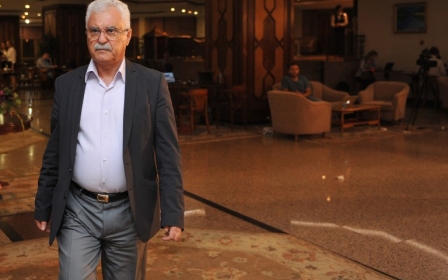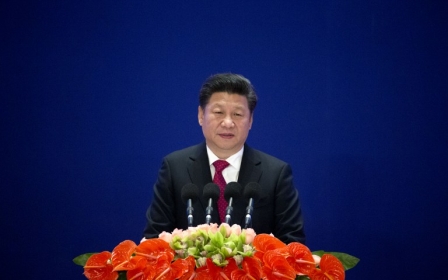US 'still concerned' by Iranian activities, Kerry tells Saudi hosts

John Kerry, the US Secretary of State, said on Saturday that Washington remained concerned about Iran's activities in other countries in the Gulf and Middle East as he sought to reassure regional counterparts on a visit to Saudi Arabia.
Kerry's visit to Riyadh comes amid heightened tensions between Saudi Arabia and Iran, stoked by the execution by Saudi Arabia of prominent Shia cleric Nimr al-Nimr and subsequent protests in Iran in which Saudi diplomatic buildings were attacked, prompting Saudi Arabia to cut off diplomatic ties.
At the same time, US relations with Iran have been perceived to have warmed considerably since the country signed a deal earlier this month to curb its nuclear activities in return for the lifting of international sanctions.
Speaking after meeting Adel al-Jubeir, the Saudi foreign minister, and other foreign ministers from the Gulf Co-operation Council (GCC) states of United Arab Emirates, Qatar, Oman, Bahrain and Kuwait, Kerry cited Iran's support for Hezbollah in Lebanon as a cause for concern.
"The United States remains concerned about some of the activities that Iran is engaged in in other countries," Kerry told reporters.
Jubeir said Iran remained “the world's chief sponsor of terrorism,” which Arab states stood ready to confront.
"Overall I think the United States is very aware of the danger of Iran's mischief and nefarious activities ... I don't believe the United States is under any illusion as to what type of government Iran is," he said.
Kerry later met with King Salman and the monarch's son, Deputy Crown Prince Mohammed bin Salman, who is also the defence minister.
US State Department officials had earlier told reporters that damping tensions between Riyadh and Tehran, which also back different sides in regional conflicts in Syria and Yemen, was one of the main objectives of Kerry's visit.
Kerry also held talks on Saturday with Riad Hijab, the general coordinator of Syria's largest opposition coalition, and spoke on the phone to Sergei Lavrov, the Russian foreign minister whose country is carrying out air strikes in support of Syrian President Bashar al-Assad.
Peace talks between Syrian government and opposition representatives are due to start in Geneva, Switzerland, on Monday, although disputes over the make-up of the opposition's representatives and threats by some not to participate because of Russia's involvement in the war have undermined preparations.
Hijab insists the delegation from his High Committee should be the only opposition representatives, but the committee's decision to name a member of the Saudi-backed Jaish al-Islam rebel group as its chief negotiator has drawn criticism from some of its own members as well as opposition figures excluded from the coalition.
Kerry said he was optimistic that talks would go ahead and told reporters a meeting of the Syria Support Group of 20 nations and organisations would meet “very shortly” after the first round of talks "because we want to keep the process moving".
The group of 20 nations and organisations includes countries that are opposed to Assad staying in office and those who support him, including Russia and Iran.
Kerry's visit to Saudi Arabia comes amid a flurry of diplomacy in the region, with China's President Xi Jinping in Riyadh earlier in the week as part of a Middle Eastern trip that on Saturday takes him to Iran, and US Vice President Joe Biden holding talks with NATO partner Turkey.
New MEE newsletter: Jerusalem Dispatch
Sign up to get the latest insights and analysis on Israel-Palestine, alongside Turkey Unpacked and other MEE newsletters
Middle East Eye delivers independent and unrivalled coverage and analysis of the Middle East, North Africa and beyond. To learn more about republishing this content and the associated fees, please fill out this form. More about MEE can be found here.




